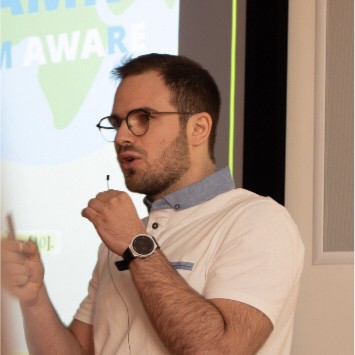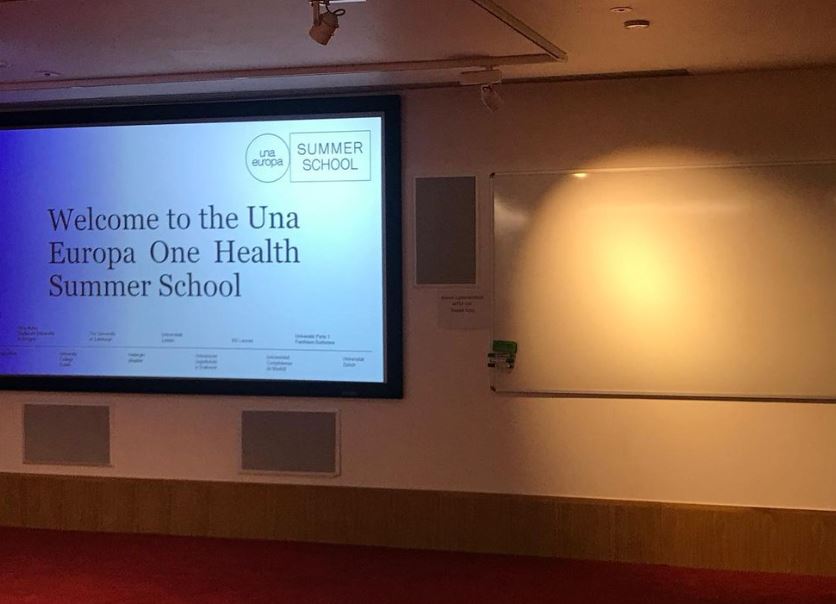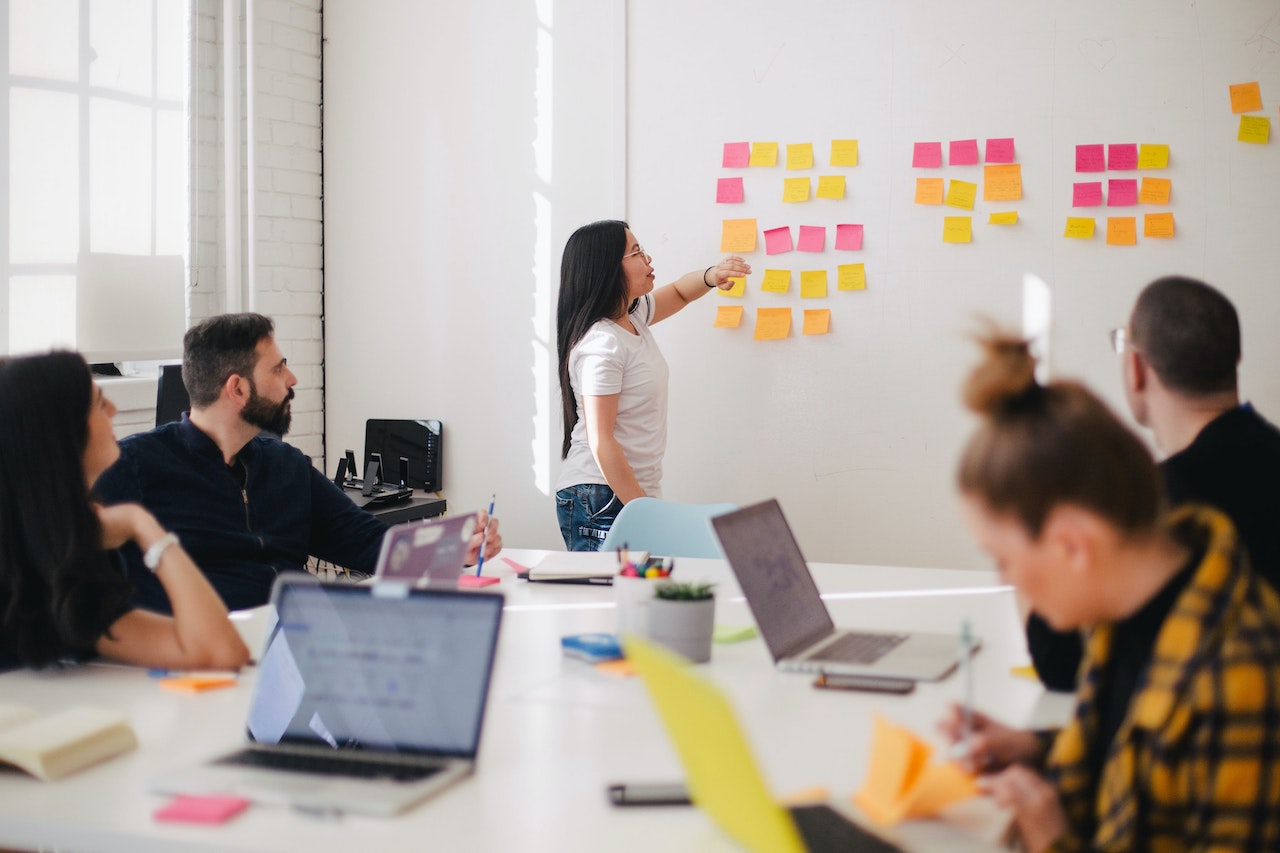Things are packed, and the passport is ready. Now it’s just a matter of getting on the train and embarking on an adventure. Quite unexpectedly, as a Master’s Student in Physiotherapy, I was accepted for the One Health Summer School in Edinburgh, organized by Una Europa. I had the opportunity to represent my profession with pleasure in this 2-week event.
Completely unaware of what to expect, I met students from the same Belgian university relatively early. After a long journey, we finally arrived in the Scottish capital and found a diverse group of people there. Diverse not only in terms of nationality but also in academic background. There were students from veterinary and human medicine to politics, communication, and journalism students, all from 9 different European universities, together with our friends from Ukraine.
The goal was clear: Work on an interdisciplinary topic and find solutions together. During the two weeks we spent in Edinburgh, we deepened our knowledge of One Health by tackling a global challenge and collaborating with other students.
As a physiotherapist, it might seem hard to find your place in the vast fields of One Health, Planetary Health, etc. Still, it quickly became apparent while talking to the other participants, that I was not alone in this apprehension. The problems that the world is facing today affect us all, so it is even more critical for everyone to ask themselves how their discipline can contribute to a solution, especially in the context of One Health.

Noah Fassian (PT, BSc, MSc i.e.)
Physiotherapist
Noah Fassian is a Masterstudent in Sportphysiotherapy at the KU Leuven in Belgium. Previously, he graduated in 2016 with a Bachelor in Physiotherapy in Heidelberg, Germany. His current interest is in One Health and Planetary health as well as the connection and the role of physiotherapy in this field.

The beginning of the Summer School was very enthusiastic. There was a lot of emphasis from the participants about the benefits of having cultural and academic diversity. But after 2 days, when the program got a bit more serious and we had to agree and define a common problem, the hurdles that diversity brings became more visible. This situation reflected the reality in my eyes. Interdisciplinarity is inevitable, and the difficulty behind it should not be underestimated. While working on our group project, I observed that our backgrounds seemed too different and it seemed too difficult to speak a common language. It seemed too challenging to agree on a topic where everyone could contribute with their own expertise.
At the end, we agreed on a common topic strongly influenced by one of the lectures about the importance of implementing scientific knowledge to the general population. Specifically, in my team, we decided to tackle the problem of the different level of awareness of Antimicrobial Resistance (AMR) in the general population. Because, after all, scientific knowledge is of little use if it means nothing to the public.
During the second week, we tried to find innovative solutions for our defined problem, however, the mentioned difficulties of cultural and academic differences remained. My nerves were on edge for a moment, and it seemed almost hopeless to create something significant. But against all expectations, we managed to put our differences aside, break the boundaries of our professions, and create something meaningful together. Personally, this was a real learning moment.
At the beginning, we focused too much on what the topic had to do with our profession. What does AMR have to do with physical therapy? What does AMR have to do with politics or geography? But step by step it became clear that if we don’t know how to overcome the boundaries of our profession, we will end up standing in our own way. We have a common problem: AMR is a real threat to the Health of people so it is essential to influence people’s behavior to slow down this process. To find a solution, everyone can contribute with their own expertise. For example, through our academic background, everyone can ensure an evidence-based approach. Furthermore, group members from human and veterinary medicine bring their knowledge on what AMR is and how it can be understood. An essential cornerstone of physical therapy is our patients’ education and behavior change. This is where I, too, can bring my expertise on how some specific techniques can improve knowledge and hopefully achieve long-term behavior change. Last but not least, since the topic of AMR and raising awareness is a highly political topic, it is also essential to have people in our team who know about politics and how to reach and influence policymakers.

At the end, we agreed on a common topic strongly influenced by one of the lectures about the importance of implementing scientific knowledge to the general population. Specifically, in my team, we decided to tackle the problem of the different level of awareness of Antimicrobial Resistance (AMR) in the general population. Because, after all, scientific knowledge is of little use if it means nothing to the public.
When the One Health Summer school ended, it was amazing to see how happiness and gratitude on the one hand, and sadness on the other, were so close to each other. I attented this Summer School with the intention of acquiring knowledge relevant to my profession. That intention is still there. However, I learned a much more valuable lesson: transdisciplinary work. People often ask me what physiotherapy has to do with climate change, One Health, Planetary Health, or biodiversity. Initially, I would have answered with arguments about how physiotherapy contributes to all these issues, for example, by preventing diseases. But I have learned that when it comes to complex matters like One Health, we have to stop thinking in terms of professions; we have to start overcoming the barriers and boundaries of our profession and agree that we have a common goal and that everyone is needed, everyone’s expertise is required. Not multidisciplinary but transdisciplinary work to create something new. Each profession must consider what part they can individually contribute to the solution. Still, when it comes to finding standard solutions, it is crucial to overcome this thinking in silos and start to understand the “Oneness” in One Health.
My experience of this One Health Summer Schools gives me hope that we can overcome our differences and create something meaningful, hopefully leading to essential solutions to global challenges. Now, the Summer School is coming to an end, but for me, it is only the beginning.


I really like this article – it’s easy to question the meaningfulness of our contribution to issues that don’t fit neatly within Physiotherapy. Challenging this like you have encourages me to think about the bigger picture and to believe that we can affect real positive change on a much larger scale.
Thank you for your comment! I guessits not easy to break up the boundaries and its connected with difficulties but as you say probably the only way how we can affect real positive change!